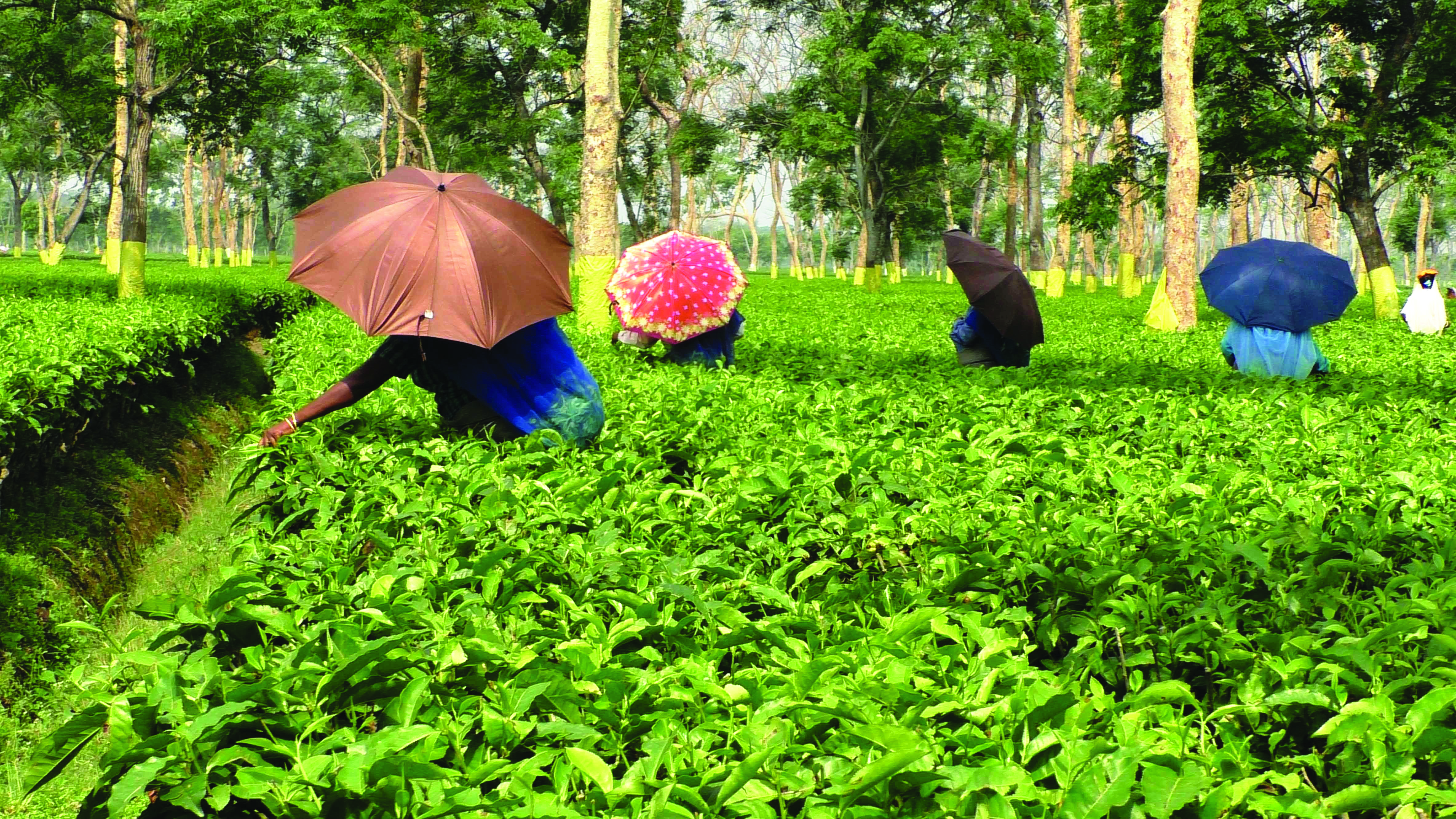
Extreme heat hits tea production in plains of North Bengal region
MP | 17 Apr 2023 | Alipurduar: The intense heatwave that is sweeping Bengal has left the tea industry worried. The tea gardens of Terai and Dooars are apprehending extensive loss in the production of second flush owing to the prevailing heat.
Records from the weather department show that in the past years, despite the rise in temperature during the day in April, Nor’westers would occur in the afternoon, causing a drop in temperature.
However, there is no indication of rain or storms this time. In the past few days, the temperature during the day in the Dooars and Terai regions has touched 42 degrees Celsius. The average night time temperature is around 24 degrees Celsius.
The second flush tea leaves are plucked in April and this is one of the highest produced teas in the region.
For the best results, the temperature should be between 28 to 32 degrees Celsius with a 7 degree difference existing between the maximum and minimum temperature. However, this April, that difference has reached almost 16 degrees Celsius.
Due to the increased difference between maximum and minimum temperature, most tea gardens have reported instances of leaf scorch disease. In this disease, the leaves of the tea plant turn yellow and fall off.
Artificial irrigation cannot prevent the spread of the disease in tea gardens. Sanjay Bagchi, the Convener of the Tea Garden Owners’ organisation, DBITA, said: “On Sunday, the maximum temperature in various places in Alipurduar and Jalpaiguri districts was 39 degrees Celsius, and it was around 41 degrees Celsius in the Siliguri region.
The minimum temperature was 24 degrees Celsius. The large temperature difference is sufficient to damage tea plants. There has been no storm or rain in this region for the last 15 days. As a result, tea bushes have begun to scorch.” Also Read - Heatwave to continue, light rainfall likely on Friday: MeT In Terai-Dooars, there are almost 200 tea gardens suffering from similar conditions.
Artificial irrigation is generally not required in tea gardens during April. However, on Sunday, artificial irrigation had to be done in various tea gardens of the two districts in Jalpaiguri, Alipurduar.
Chinmay Dhar, the Chairman of the Tea Association of India, said: “I have been associated with the tea industry for 16 years, and record temperature levels like this were not observed in the month of April in the past 16 years. There has been no rain in North Bengal since the last 15 days. Due to this, different types of insect infestations have increased in tea gardens. The amount of moisture in the air is quite low.
The use of pesticides does not yield any benefits. In the last three days, due to intense heat in the Majher Dabri tea garden, four tea workers have fallen sick and been admitted to the hospital.’’
ORS has been arranged for workers in the Majher Dabri tea garden, added Dhar. Tea workers are also facing problems during plucking. Pushpa Toppo, a tea plucker of Majher Dabri Tea Garden, said: “We have not yet faced such heat during April, and there is no sign of rain at all.”
Courtesy & source- Millennium Post
https://www.millenniumpost.in/bengal/capital-reports-1017-fresh-covid-19-cases-positivity-rate-soars-to-3225-515565?infinitescroll=1

0 Response to "Extreme heat hits tea production in plains of North Bengal region"
Post a Comment
Disclaimer Note:
The views expressed in the articles published here are solely those of the author and do not necessarily reflect the official policy, position, or perspective of Kalimpong News or KalimNews. Kalimpong News and KalimNews disclaim all liability for the published or posted articles, news, and information and assume no responsibility for the accuracy or validity of the content.
Kalimpong News is a non-profit online news platform managed by KalimNews and operated under the Kalimpong Press Club.
Comment Policy:
We encourage respectful and constructive discussions. Please ensure decency while commenting and register with your email ID to participate.
Note: only a member of this blog may post a comment.